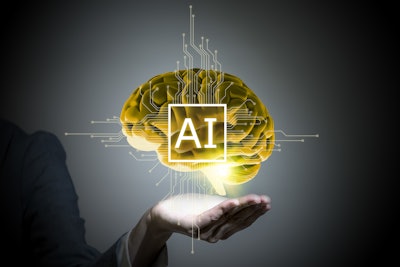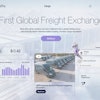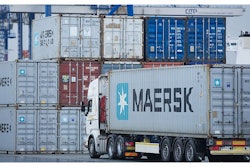
Yes, artificial intelligence (AI) is here and can make a difference in supply chain. But, says Accenture in a new report, the people element can’t be overlooked.
AI, the study says, “Consists of multiple technologies that can be combined in different ways to sense, comprehend, act and learn. Accenture research shows that AI has the potential to boost rates of profitability by an average of 38 percent by 2035 and lead to an economic boost of $14 trillion (U.S.) across 16 industries in 12 economies by 2035. But, this will only happen if organizations adopt a people-first mindset and take bold and responsible steps to apply AI technologies to their business.”
Study co-author Mark Purdy, managing director of Accenture Research, wrote, as the new factor of production, AI can drive growth in at least three important ways:
- First, it can create a new virtual workforce—what we call intelligent automation.
- Second, AI can complement and enhance the skills and ability of existing workforces and physical capital.
- Third, like other previous technologies, AI can drive innovations in the economy. “Over time, this becomes a catalyst for broad structural transformation as economies using AI not only do things differently, they will also do different things,” Purdy said.
In addition, Accenture identified eight cross-industry strategies to make this a reality.
AI strategy and leadership: At many firms and industries, Accenture says, “The impetus and interest for AI still comes from the bottom or from the middle of the organization—from digital enthusiasts that have seen these technologies and are personally excited by their promise. But, attaining the value from AI that our analysis suggests will demand recognition and action from the very top of the company.”
The first step is to make the benefits of AI apparent to the C-suite. A roadmap to grow the business should incorporate AI as a critical enabler. “As such, it is incumbent on leaders and strategic planners from across the business to have a sufficient grasp of AI to effectively transform existing business plans, to define key decision points and to guide appropriate investment decisions,” the report notes.
Reinvent HR into HAIR: Since AI is a form of virtual labor, it will interact with the workforce, contributing and adding value in the same way a human co-worker would, so the role of human resources (HR) will not only be about managing human employees, but also the supervision of AI workers—Human AI Resources.
“The HR function itself will also need to incorporate AI technologies in all aspects of its work, from hiring to retirement,” Accenture says.
Learn with machines: According to Accenture Research, fully exploiting the potential of AI, human and machine intelligence must be tightly interwoven. “There will be a need for new skills in the workforce that leapfrog technical expertise, with a new emphasis on human abilities—judgment, communication, creative thinking—that complement technologies.”
Appoint a chief data supply chain officer: The report suggests this executive will need to construct an integrated, end-to-end data supply chain, considering issues such as: What is the balance between internal and external data sources? What is the company’s data churn and cost per day? Where are the data silos? How can our company simplify data access?
Create an open AI culture: “Corporate culture must adapt to the presence of its new AI employees,” the report explains. “Humans and machines will be collaborating, teaching and learning from one another. This demands trust, openness and transparency, just as any co-working relationship. For example, it may become tempting to blame machines for poor performance or faulty output, rather than identifying weaknesses—whether human or machine—and improving them.”
Step beyond automation: Automation has been a critical staple of business strategy in the past. Yet, with recent strides in AI, Accenture says companies “need to take a step beyond to harness the intelligence of dynamic, self-learning and self-governing machines.”
Take the crowd into the cloud: The next step in innovation, the report predicts, will be to combine the crowd-sourced data in the cloud with AI capabilities to create new and disruptive business opportunities. Platforms such as Google Cloud and Amazon Web Services already are doing this.
Measure your return on algorithms: Measures for traditional factors of production include return on capital, as well as human performance metrics for employees. “As a new factor of production, AI will also require new or adapted measures. CFOs will need a new toolbox of financial metrics to properly assess the ‘Return on AI,’” Accenture says. This could be related to value generated from each algorithm or some combination of initial outlay and ongoing costs.
“To realize the opportunity of AI,” sums up co-author Paul Daugherty, Accenture chief technology and innovation officer, “it’s critical that businesses act now to develop strategies around AI that put people at the center, and commit to developing responsible AI systems that are aligned to moral and ethical values that will drive positive outcomes and empower people to do what they do best—imagine, create and innovate.”
Barry Hochfelder is a freelance journalist who has covered a variety of industries in his career, including supply chain. He also served as the former editor of Supply and Demand Chain Executive. Hochfelder is based in Arlington Heights, Illinois.

















